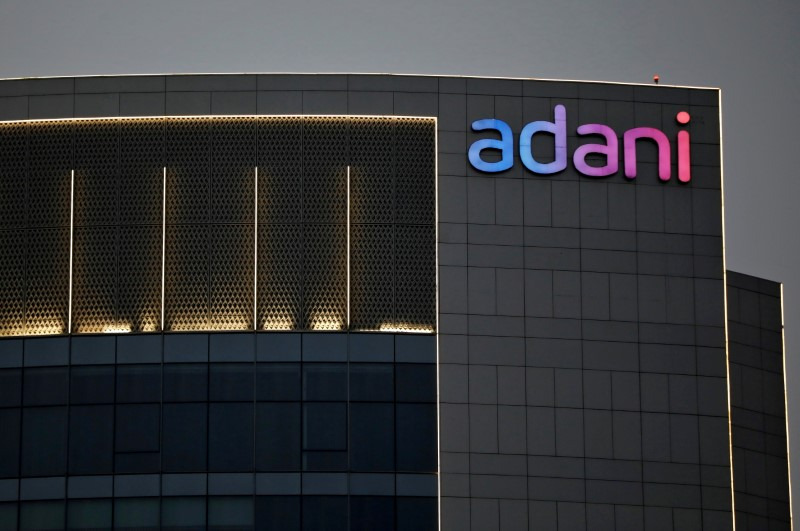The Adani Group stands as a prominent conglomerate, commanding a prominent position in the Indian business landscape due to its diversified portfolio spanning various sectors. Led by the visionary Gautam Adani, the group has carved a significant niche for itself in the realms of energy, infrastructure, logistics, ports, and mining.
It has emerged as a driving force behind the development and transformation of critical infrastructure in India, particularly in the spheres of logistics and transportation.

Image Source: Reuters
At the heart of the Adani Group’s operations lies an extensive network of ports that serve as vital gateways for trade and commerce. The group’s crown jewel, Adani Ports and Special Economic Zone (APSEZ) stands as the largest private port operator in India. With strategic locations along the country’s vast coastline, APSEZ facilitates the smooth movement of goods, fostering economic growth and international trade.
Moreover, the Adani Group has emerged as a key player in the renewable energy sector, spearheading initiatives in solar and wind power. Through its subsidiary, Adani Green Energy Limited (AGEL), the conglomerate has made significant investments in renewable energy projects.
AGEL is renowned as one of the leading renewable energy companies in India, actively involved in the development, construction, and operation of solar and wind power assets. The group’s commitment to clean and sustainable energy sources aligns with India’s ambitious goals for renewable energy adoption.
The reach of the Adani Group extends beyond energy and infrastructure. It has diversified its interests into mining, agribusiness, real estate, and financial services. With a steadfast focus on strategic expansion and capitalizing on emerging opportunities, the conglomerate has made significant strides in these sectors, solidifying its presence and influence.
While the Adani Group’s rapid growth has attracted substantial attention and investment, it has not been without its fair share of scrutiny and controversy. Concerns surrounding environmental impact, land acquisition practices, and corporate governance have generated intense debates and raised questions about the sustainability of its expansion. These challenges have prompted regulatory bodies and market participants to maintain a watchful eye on the group’s activities.
In light of recent developments, the Adani Group finds itself once again under the spotlight. The National Stock Exchange (NSE) and the Bombay Stock Exchange (BSE) have decided to include Adani Enterprises in the short-term Additional Surveillance Measure (ASM) framework. This move, as announced through separate circulars, is set to take effect from May 25, 2024, creating ripples within the investment community.
The objective of the short-term ASM framework is to closely monitor and regulate share price fluctuations, ensuring the protection of investor interests. Adani Enterprises will be subjected to a margin requirement of 50% or the prevailing margin, with a maximum cap set at 100%. These measures aim to mitigate volatility and shield retail investors from potential losses in a market renowned for its rapid swings.
The recent re-inclusion of Adani Enterprises in the ASM framework signifies a shift in market sentiment and raises fresh concerns or developments that prompted the exchanges to exercise heightened surveillance and caution.
The immediate market response was pronounced, with the share price of Adani Enterprises experiencing a sharp decline of nearly 8% during intraday trading. Plunging to a low of ₹2,425.35, the market’s reaction to the company’s re-inclusion in the ASM framework was evident. Interestingly, the stock had witnessed a remarkable surge of 39.41% in the preceding three days, prompted by the release of a report from a panel appointed by the Supreme Court.
The report exonerated Adani group companies from allegations of stock price manipulation made by Hindenburg Research, providing a much-needed sense of relief to investors on Dalal Street. Consequently, the Supreme Court granted the Securities and Exchange Board of India (SEBI) an additional two months to conduct further investigations into the matter.
Adding a layer of complexity to the situation, investment firm GQG Partners, having already made a substantial investment of ₹15,000 crores in Adani shares back in March, increased its stake in the Adani group by 10%. However, despite this significant move, the stock closed 6% lower at ₹2,475 on the Bombay Stock Exchange, reflecting the intricate dynamics at play.
As market participants remain poised, the focus intensifies on the unfolding developments surrounding Adani Enterprises. The re-inclusion of the company in the short-term ASM framework and the ongoing investigations by regulatory bodies introduce an element of uncertainty.
The outcomes of these events will undoubtedly shape the future trajectory of Adani Enterprises’ shares and exert a significant influence on market sentiment toward the conglomerate. Investors, analysts, and industry observers eagerly await further updates and insights as the situation continues to evolve in the coming days and weeks.












